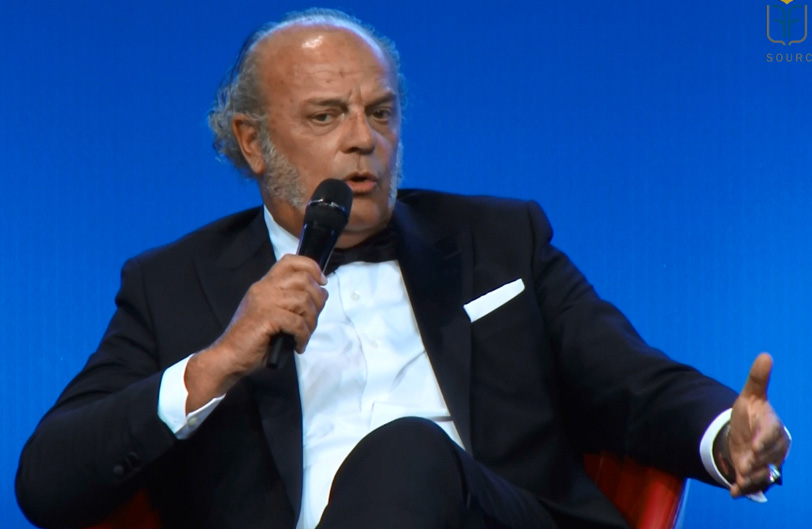The future of class actions in Italy from a claimant perspective

23 May 2019, interviewers: Parisa Jahan and Isabella Wijnberg
Sergio Calvetti is the founder of Calvetti & Partners (1987). He specialises in financial and banking law and representing individual claimants in class actions, especially against pharmaceuticals and financial institutions.
Given Sergio’s large portfolio of class actions, we wanted to find out his views on their future, also in light of the new class action law that was introduced earlier this year. We were invited to Sergio’s office in Treviso to interview him in Italian. His meeting room feels more like an art gallery than a lawyer’s office. In fact, Sergio’s second love, after law, is art. He is
an avid collector of paintings, sculptures and musical heirlooms. Sergio’s offices boast a large collection of artworks by renowned artists.
Laura Cagnin, one of his colleagues, joins the conversation. Sergio’s dog graces us with its presence. The quotes mentioned below are translations of the Italian conversations.
Changes within the Italian class action landscape
According to Sergio, US style class actions are a new territory for Italians. But after the new law comes into force in April 2020, “class actions will for sure become an increasing trend in Italy and will increase in quantity.”
Although he is sure that this will be a trend, this might take time, because in his words “Italians are not keen on change.” He thinks it will be necessary to make the Italian public aware of the changes in the class action landscape. Raising public awareness, for example by media coverage, is a start.
And the media is certainly interested in the topic. Sergio shows us an article in the local daily newspaper, La Tribuna di Treviso, in which he commented on one of the class actions he
works on, representing 20 claimants from Treviso in a personal injury case against a multinational pharmaceutical company.
Collective actions require homogeneity
After Sergio showed us his newspaper article, we explain that in the Netherlands, we are quite limited in claiming compensation for physical damage in class actions, because this kind of damage is rarely homogenous.
We are curious to know if this is seen as a problem in Italy as well. Sergio explains that the options for claiming compensation for physical damage under the current class action regime are limited.
However, he thinks this might change under the new legislation, if the courts have to find practical solutions for large claims. For example in his opinion, in the Treviso case, the court could issue a declaratory judgment that the drug has a certain effect on people.
After this, individuals can use this judgment to quantify their damage and solve individual issues such as the period they used the drug etc. In terms of standing, he
finds it difficult in practice to find a sufficient number of people to start a class action.
“Quantity is an important factor for the effectiveness of a class action.”
European public enforcement would encourage private enforcement
We continue our discussion about his class actions against pharmaceutical companies. Sergio explains that public and private enforcement can cooperate well. “For example,”
he continues “judges can find that a certain medicine does not function well, due to an investigation of this medicine by the ‘Agenzia Italiana del farmaco’ (“AIFA”), the Italian pharmaceutical agency.”
In his eyes, this enforcement should be European and this affects the opportunities for harmed individuals to get compensation. As an example,
he mentions the class action he worked on against the makers of the contraceptive pill ‘Yasmin’, which allegedly causes thrombosis.
In Italy, a lot of women were questioned about these side effects. Sergio mentioned that he knows that in Switzerland, the Netherlands and Croatia, similar interviews were held to test this medicine. “If there was one common organisation that undertook these interviews, instead of several national organisations, it would be easier to show the size of the group of individuals
that are affected by the medicine. This would make it easier to start a class action.
Furthermore, we need control of medical institutions such as AIFA on a European level, since they are not supervised.” In an ideal world, not only would there be a European public supervisor but there would also be a European court that specialised in European class actions and that could also take on personal injury cases, like injuries caused by the side effects of drugs.
Need for homogeneity on a European level
We query whether more legal homogeneity on a European level would be necessary.
“Yes, indeed,” Sergio answers, “In my view, the Italian system is what I call ‘normatively restricted’ and I think it is fundamental that there is homogeneity on a European level.
What I mean by that is that the laws in the European Union are currently based on the economic principles of the politically strongest countries rather than on uniform valid
principles. One of the consequences is that each of the countries still has a large liberty in deciding its legal system. However, national politics influence the legal systems of Member States.
As the political systems differ, for example, the laws differ in a broad sense.” So in short, it would be important to give less room to each individual Member State to decide its own rules, we ask. “Yes, because it is even more important to have legal instruments against big multinationals.” In Sergio’s view, these companies are benefiting from the current system, especially the pharmaceutical and the financial industry.
He continues, “American companies that are active in the Italian market abuse the fact that it is not allowed to claim punitive damages.”
No current alternatives to litigating by mandate
According to Sergio, it is currently only possible to join a consumer association and give a lawyer a mandate to litigate for the association. “Until the new law comes into force,
litigating by mandate is the only option. And to be honest,” he continues “it might be the best option even after the new law enters into force.”
Limited class settlement options
Sergio explains that court-approved settlement options are currently only available in Italian arbitration proceedings.
Arbitration is different to litigating before a national court and you have to agree to arbitration, which is uncommon in the legal relationship between a company and consumer.
“I do not expect the settlement options to change in the near future”, he says. However, consumers can settle collectively out of court.
Third party funding and potential abuse
Sergio believes third party funding in Italy will give more opportunities to consumers.
He explains: “Third party funding is possible and we are funded through third party funders, the consumer association.” Given this answer, we wonder if he thinks that the class action system is being abused. He does not think that that abuse of class actions occurs or is likely to occur in Italy, although he notes: “In theory, of course there are possibilities to incorrectly influence the proceedings.
I can also imagine that a pharmaceutical company might finance a class action against its competitor.”
The Italian torpedo not used in class actions
We ask Sergio whether the Italian torpedo, a tactic where a party tries to frustrate its opponent by bringing an action in an EU Member State with a reputation for having an
inefficient judicial system, which is often used in competition litigation cases, could also be used in class actions.
But, although according to Sergio the phenomenon is widely used, it is not common in class actions. “The Italian legal system is fundamentally slow
and complicated. However, the Italian proceedings for class actions do not take particularly long, especially not if public interests are at stake.”
Landmark case
We ask Sergio what in his opinion is the most important Italian case in this area.
This is not an easy question for Sergio, who initially tells us: “There are a lot of cases, all of them are important.” After a moment of thought though, he picks the Freedomland
case.*
*Tribunale di Milano 25 luglio 2008, Sentenza N.9828/2008.
Freedomland is one of the few successful class actions in Italy since the tribunal of Milan ordered the Consob bank to pay EUR 3 million in compensation to 2,000
shareholders in Freedomland, including 1,500 shareholders from Treviso.
Sergio acted on behalf of the shareholders “who bought stock of the company Freedomland and found out that the company arbitrarily fixed the share price
and did not capitalise the value of the shares.” This judgment is notable, according to Sergio and Laura, because the Court of Milan recognised the responsibility of CONSOB, the National Commission for Companies and the
Stock Exchange, which is rare.
Predictions for the future
We conclude the interview by asking Sergio what he thinks will be the most important development in the future of class actions. He replies: “An increase in class actions, both
in quantity and in the type of cases and the establishment of a central European body to safeguard homogeneity and effective enforcement.”



